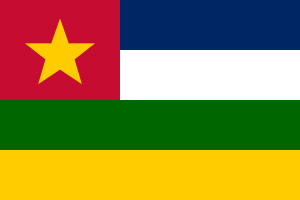Language/Pulaar/Grammar/Plurals
Hi Pulaar learners! 😊
In this lesson, we will be covering plurals in Pulaar. This is an important aspect of the language as it allows us to refer to more than one person, animal or thing. By the end of this lesson, you will be comfortable with using plurals correctly and expressing yourself with more precision.
Consider broadening your understanding by checking out these related lessons: Give Your Opinion, Conditional Mood & Negation.
Introduction[edit | edit source]
Like many other languages, Pulaar uses different forms to express the idea of plurality. Plurals are mainly formed by adding a suffix to the noun, but there are also a few other techniques that you will see throughout this lesson. Although the rules for plurals are fairly straightforward, it is important to pay attention to the word classes and specific noun endings, as these can influence the way the plural form is constructed.
Regular Plurals[edit | edit source]
In most cases, the plural form of a noun in Pulaar is created by adding the suffix -ɓe. This suffix denotes more than one of the noun, and it can be added to any noun in the language, whether it ends in a vowel or a consonant. The rules are simple: replace the final vowel of the singular noun with -ɓe. However, when a singular noun ends in a consonant, a vowel is added before the -ɓe suffix for better pronunciation.
Here are some examples of regular plurals in Pulaar:
| Pulaar | Pronunciation | English |
|---|---|---|
| ndar | ndar-ɓe | houses |
| baaba | baaba-ɓe | fathers |
| eekɛ | eekɛ-ɓe | trees |
| fof | fof-ɓe | cats |
Plural of Compound Nouns[edit | edit source]
Compound nouns are nouns that consist of two or more words, and they are typically written together without any spaces. When compounds are used in plural form, only the last element in the compound takes the plural suffix -ɓe. For example, consider the compound noun timmuji gale:
| Pulaar | Pronunciation | English |
|---|---|---|
| timmuji gale | timmuji gale-ɓe | big cars (literally, "cars big") |
Plural of Nouns Ending in "Te"[edit | edit source]
If a singular noun ends with a long "e" sound, the plural suffix -je is used instead of -ɓe. This change is due to the specific pronunciation of the Pulaar language.
Here are some examples of nouns ending with a long “e” sound and their corresponding plural forms:
| Pulaar | Pronunciation | English |
|---|---|---|
| dante | dante-je | tails |
| galle | galle-je | bowls |
| laale | laale-je | leaves |
Plural of Nouns Ending in "ŋel"[edit | edit source]
If the singular form of a noun ends in -ŋel, then the plural is formed by dropping -el and adding -eere.
| Pulaar | Pronunciation | English |
|---|---|---|
| winndereŋel | winnder-eere | baskets |
| taggoreŋel | taggor-eere | doors |
Exceptions[edit | edit source]
Like most languages, Pulaar has some exceptions to the regular plural rule. Here are two examples:
Plural of "juɓɓe"[edit | edit source]
The word "juɓɓe" means "children" in Pulaar, and it is the plural form of "ɗieɗe," which means "child."
| Pulaar | Pronunciation | English |
|---|---|---|
| ɗieɗe | ɗieɗe-enna | a child |
| juɓɓe | juɓɓe-enna | children |
Plural of "yero"[edit | edit source]
The word "yero" means "man" in Pulaar, and it is the singular form of the word "yeronkoo." This means "men" in English. The plural suffix here changes to "-ɓe" instead of "-ko".
| Pulaar | Pronunciation | English |
|---|---|---|
| yero | yero-ɓe | men |
Examples in Context[edit | edit source]
Here are some examples of plurals in Pulaar used in everyday conversation:
- Person 1: Kadi, nande tawardoo ko ? (Kadi, how are your siblings?)
- Person 2: Nande sukaara nii heen, maa eɓde sante. (My siblings are fine, they are going to school.)
- Person 1: Ommi yonna haaliima e preese la. (My mother bought some clothes.)
- Person 2: Haaliima-ɓe, ngam ballal la. (Clothes, put them in the bag.)
Summary[edit | edit source]
In this lesson, we learned about the different techniques used to form plurals in Pulaar. We covered regular plurals and plural forms for compound nouns and specific noun endings. We also saw that there are some exceptions to the regular plural rule in Pulaar. Studying and using plurals effectively in Pulaar will take practice and attention to detail, but it is an integral part of expressing oneself accurately in the language.
Remember, to improve your Pulaar Grammar, you can also use the Polyglot Club website. Find native speakers and ask them any questions!

